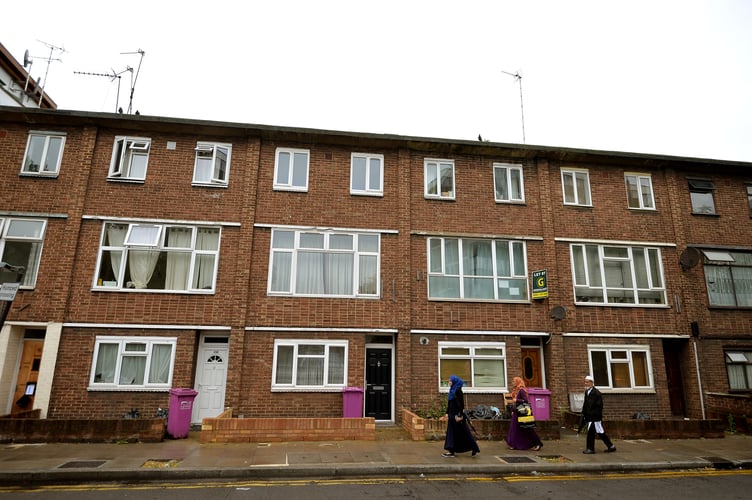Waverley Council was found to be at fault for multiple problems with leaks, damp and mould faced by its tenants over the past five years, new figures show.
The figures come amid a massive rise in rulings against social landlords for these issues, with a charity warning new legislation may not be enough to improve social housing conditions.
The Housing Ombudsman deals with complaints from social housing tenants about the state of their accommodation.
In cases where the landlord has failed to do something, caused unreasonable delays or failed to help its tenants, the ombudsman can rule the tenant has been a victim of maladministration.
Figures from the organisation show there were three such findings related to leaks, damp and mould in the past five years in housing managed by Waverley Council, including one in 2024.
The Social Housing Action campaign said it has heard an increasing number of complaints from social housing tenants about leaks, damp and mould.
Suzanne Muna, secretary and co-founder of the organisation, said greater sanctions are needed to punish landlords who do not deal with tenant issues, with the ombudsman currently only able to "name and shame" and issue small fines.
She also warned there is "very little that a tenant or resident can do to force their landlord to make repairs" and this may not be changed under new legislation.
From October, "Awaab's law" – named after two-year-old Awaab Ishaak, who died after exposure to damp and mould in Rochdale – will require social landlords to investigate and repair dangerous damp and mould, and deal with all emergency hazards within 24 hours.
Ms Muna said they would like to see "far more council housing, with the budgets to employ staff directly to maintain the homes, and meaningful sanctions when they do not".
Across England, the number of maladministration findings related to leaks, damp and mould nearly doubled from 893 in 2023 to 1,739 in last year.
Meanwhile, findings of 'severe' maladministration also rose, from 237 to 354 instances. This is where the landlord's behaviour was judged to have had a 'seriously detrimental impact' on the tenant.
There were no rulings of severe maladministration against Waverley Council over the past five years.
Housing associations were found to be at fault 1,062 times last year, while local authorities were in the wrong 673 times.
Richard Blakeway, the Housing Ombudsman, said landlords have been improving their response to damp and mould, making it easier for tenants to report issues.
However, he warned some landlords are repeatedly falling short, with some repairs outstanding until the ombudsman intervenes.
"In the most serious cases, landlords have not considered the circumstances of the household, such as health conditions or children being present," he added.
Lambeth Council in London fared the worst of any local authority, with 60 findings of maladministration.
The Ombudsman ruled against London and Quadrant, one of the country’s largest housing associations, more than any other (123 times, of which 40 were ‘severe’).
London and Quadrant said it takes concerns about damp and mould "very seriously".
David Lewis, director of property services at the organisation, said it had apologised to those affected and overhauled how they handle complaints.
A Ministry for Housing, Communities and Local Government spokesperson said the Government is "determined to transform the safety and quality of social housing" by bringing Awaab’s Law into force from October.
"Landlords who fail to comply face being taken to court, with social tenants able to use the full powers of the law to hold them to account," they added.




